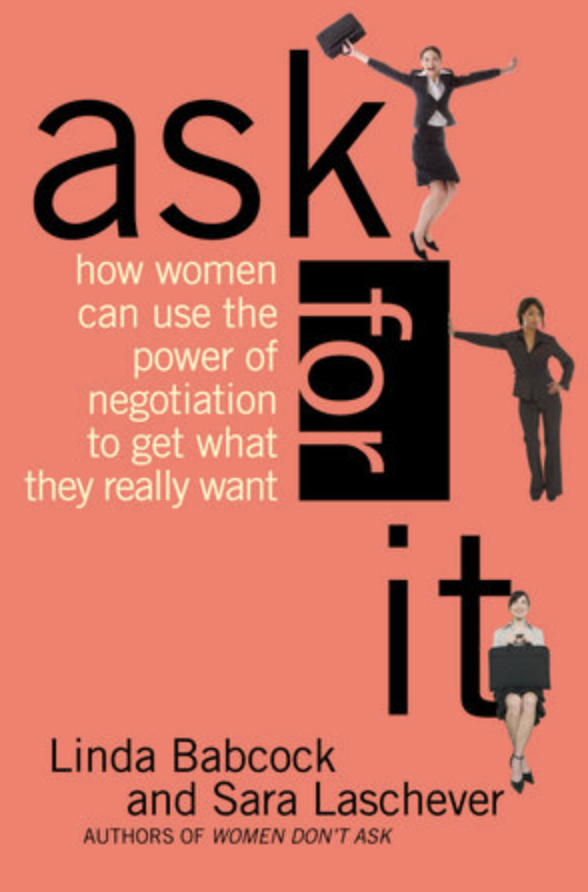Three Myths about the Gender Pay Gap
Hi there - and welcome back!
If you read my last blog entry, you’ll remember that I mentioned the gender wage gap and the major inequities that exist. The recent widespread knowledge of the gender pay gap has unintentionally created a pressure on many women to negotiate their salaries to ensure they don’t fall victim to this “phenomenon” (for lack of a better term). Many of my clients have expressed concern and feelings of confusion.
This constant vigilance can be exhausting so many women decide to turn a blind eye to it, only to find out months or years into their job that they’re being paid less than their colleagues. This discovery often leads to feelings of betrayal and hurt.
I strive to help women avoid this scenario and to do that, it’s first important to get clear on the facts so I want to take this time to disspell three myths about the gender pay gap.
Myth 1: Women don’t negotiate so they can only blame themselves.
I’ve actually never had anyone explicitly say this to me but in some conversations, the blame is implied. Linda Babcock and Sara Laschever received criticism for their book title Women Don’t Ask because of it’s blame-y tone (I personally think the book is incredible and informative, even if it’s a bit outdated) and called the updated version years later Ask For It. If you don’t dig further than the title, you won’t know all the research about the social expectations placed on women that lead them to not negotiating in the first place. (Edit: I wrote a blog post on some of these social expectations entitled The #1 Reason Women Don’t Want to Negotiate.)
Additionally, recent research amongst MBA students shows that more recent generations of women are indeed negotiating their salaries but they are told “no” more frequently than men.
Myth 2: If women negotiated their salaries, there would be no pay gap.
Research shows that it’s not women failing to negotiate their salaries as the greatest contributor to the gender pay gap. In fact, the time that women take off to have and raise children is the most significant contributor to the gender pay gap. (There are multiple contributors - it’s a multifaceted problem.)
So even if they did negotiate their salaries more, the gender pay gap would still exist.
Myth 3: Just act like a man!
Research shows that when women try to negotiate assertively (i.e., act like a man), they experience backlash in terms of:
getting less than what they ask for…
damaging the relationship with their counterpart, which in turn can…
harm her long-term career prospects.
As you can see, there is a lot of inaccurate information and the research shows that negotiating as a woman is complex and nuanced. This is why I’ve created a mini negotiation course specifically geared towards women so they can overcome these obstacles.
Overcoming the gender-based obstacles
Overcoming these obstacles might sound daunting but I’ve made sure to incorporate solutions in my mini online course, Fundamentals of Negotiation for Women (FNW) Express Course. This course will teach you how to navigate bias & negotiate strategically, while maintaining positive relationships in under 90 minutes.
1. FNW Express teaches women how to use research-based strategies to navigate gender bias. These proven strategies will reduce the likelihood of being told “no” and lead to a higher likelihood of getting what she wants. FNW Express also teaches negotiation in a way that can feel authentic and more comfortable to fit each client’s personality so she doesn’t have to perform in a negotiation that makes her feel awkward or unnatural.
2. FNW Express teaches strategies that can help women find flexible arrangements with their employers so they don’t have to choose between work and being a mom. The course also explores other options that might mitigate the pay penalty that moms experience such as:
a) parental leave for the other parent or
b) negotiating with a domestic partner so that parents can share the responsibilities equitably. (Note: this does not mean she is negotiating against her partner, rather learning to communicate effectively to find Win-Win solutions and longer-term happiness.)
3. These strategies not only avoid the negative backlash of negotiating assertively but can, in fact, strengthen their relationships with the negotiation counterpart. Time and time again, I’ve had clients come back to me surprised at how effective the strategies were, “My boss actually thanked me for bringing this up and being so thoughtful!” It’s the most rewarding part of my job.
Negotiations don’t have to be anxiety-inducing - they can instead be empowering.
According to the U.N., we are nearly 300 years away from achieving gender equity, so until we reach that point, I hope women will use these strategies to mitigate the gender bias in negotiation and get what they truly deserve.
Want to learn more?
Register for my free webinar, How to Negotiate Without Being Perceived as “Greedy”.
Check out the FNW Express course here.
And make sure you’ve opted into the email newsletter to get the latest tips in negotiation.
About the Author:
Joan is a negotiation coach and trainer. She served as a research fellow at the Women and Public Policy Program and started multiple negotiation coaching programs at Harvard.







